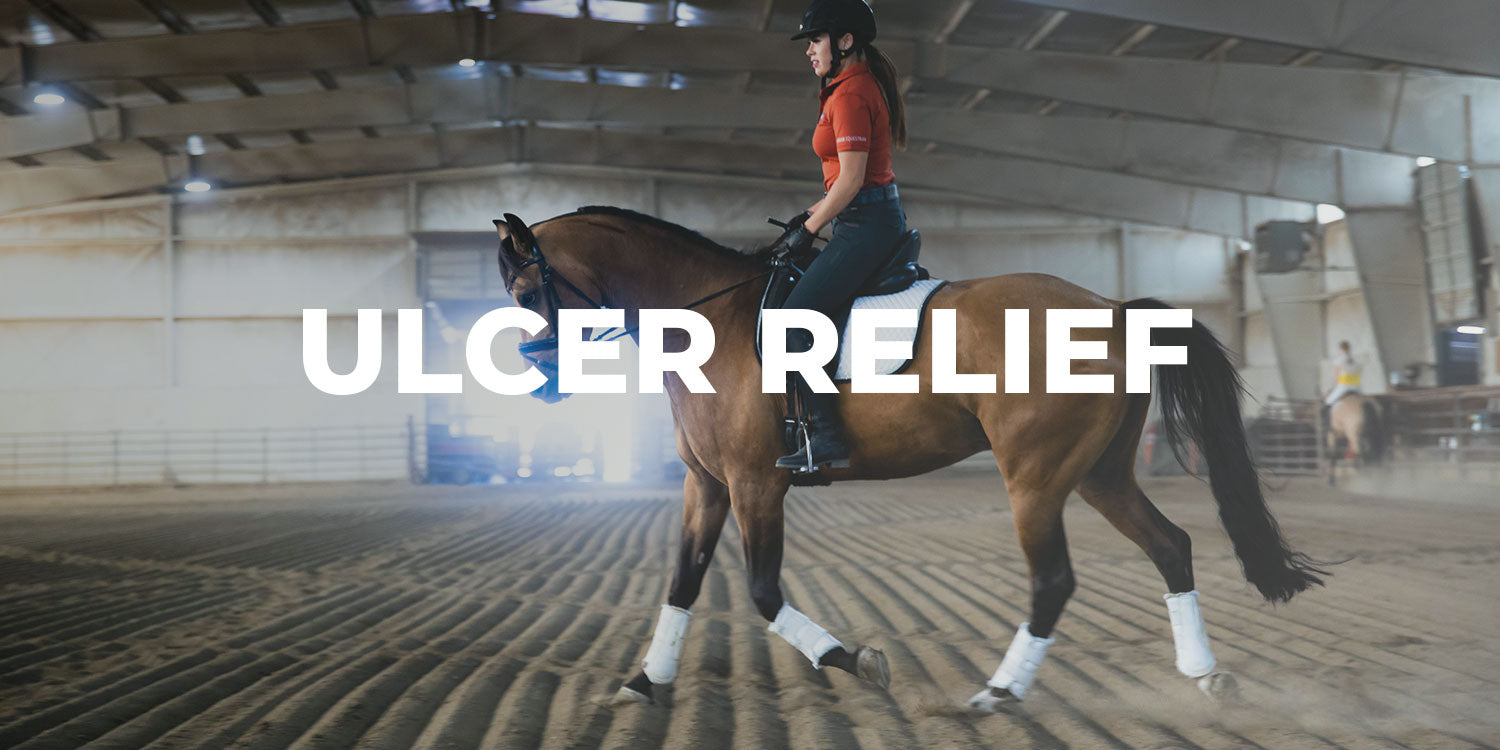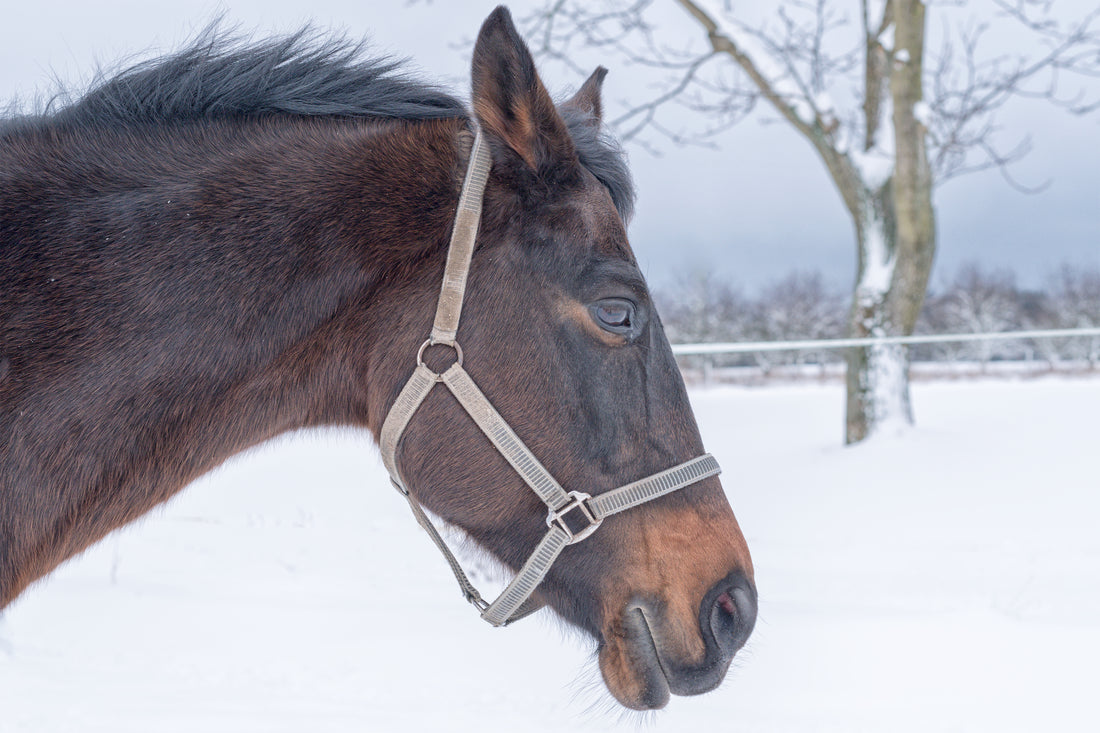Colic can be scary for any horse owner, and while a horse can colic at any time of year and in any climate, it's important to be aware of risk factors that come with the colder weather of the winter months.
Impaction colic is the most likely form of colic to be caused by cold weather. This type of colic in horses is caused by obstructions in the bowel that may be caused by hard, dry chunks of feed.
So what can you do to prevent colic in the winter?
Make sure your horse is drinking plenty of water
Making sure your horse drinks plenty of water goes a long way to prevent impaction colic. There are a number of reasons why your horse may not be drinking as much water when it's cold outside, including: Frozen water buckets, lack of sweat, and lack of a natural trigger to drink.
Here are some simple tips for keeping your horse hydrated in the winter:
- Keep their water warm by using a water heater/deicer. Your horse obviously can't drink if the water is frozen over and studies show they're more likely to drink if the water is warm.
- Add a loose salt/electrolyte to the feed. Horses need salt to stay hydrated, and salt can also make your horse want to drink more water. A salt lick is meant to be a supplement, but likely is not enough salt for your horse, and your horse is less likely to lick it in the winter. Add 1-2 Tablespoons of loose salt directly to your horse's feed every day.
- Add water directly to your horse's feed and make it into a mash. This will help your horse get more water and will make it less likely for the feed to be impacted.
We also recommend keeping some MagnaGard Paste on hand for help with mild bouts with colic. If you suspect a more serious case of colic, please contact your veterinarian immediately.
MagnaGard Paste contains simple, natural ingredients that help relieve gastric discomfort. It also is a natural lubricant, which helps prevent and address any buildup in the gastrointestinal tract.


